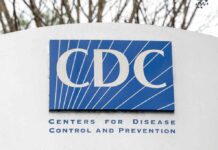
San Francisco has already recorded the highest number of drug overdose deaths in the city’s history this year, surpassing all previous years and underscoring a deepening public health crisis.
The Bay City has seen a staggering increase in drug-related fatalities in recent years. “Between January 1 and November 30, 752 people in the city died from a drug overdose,” according to preliminary data released by San Francisco’s Office of the Chief Medical Examiner. That number exceeds the previous record of 726 deaths set in 2020.
The surging prevalence of the deadly synthetic opioid fentanyl is central to San Francisco’s drug overdose crisis. Dr. Hillary Kunins, Director of Behavioral and Mental Health at the San Francisco Department of Public Health, stated at a press conference, “More than 80% of the overdose deaths in 2023 involved fentanyl.”
San Francisco Hits Record Overdose Deathshttps://t.co/k8EvIA5ddX
— Washington Free Beacon (@FreeBeacon) December 15, 2023
The epidemic has not affected all communities equally. Reports from the Los Angeles Times reveal a concerning disparity: “Almost a third of the people who died of overdose this year were Black, although Black people make up only about 7% of the city’s population.” Additionally, the homeless population has been disproportionately impacted, highlighting the intersection of substance misuse with broader social and economic issues.
In response, San Francisco officials are pioneering an innovative wastewater testing program. This initiative aims to track the presence of illicit drugs like fentanyl and emerging threats like xylazine in the community. Dr. Kunins explained the program’s significance to ABC 7 News: “We expect the data to help us access trends, increase or decreases to help us predict what we might see in terms of non-fatal overdoses and fatal overdoses.”
The crisis in San Francisco reflects a broader pattern observed across other U.S. cities. As reported by the Free Beacon, the record overdose deaths in San Francisco emerged just days after Portland, Oregon, issued recommendations focusing on drug use reduction, including declaring a “fentanyl emergency.”
Faced with these grim statistics, local health officials are determined to fight back with a multifaceted approach. Los Angeles Times reports that public health officials plan to “continue working to expand treatment options for people with substance-use disorders,” incorporating medication-assisted treatment and increasing awareness and supplies of naloxone, an opioid reversal medication.
The community response is equally vital. Michael Pappas of the San Francisco Interfaith Council emphasized the importance of collective action in a statement to local reporters: “Drugs in general are an escape for people, so anything we can do to minimize what’s happening here will make the number of people we’re remembering tonight shorter.”
































